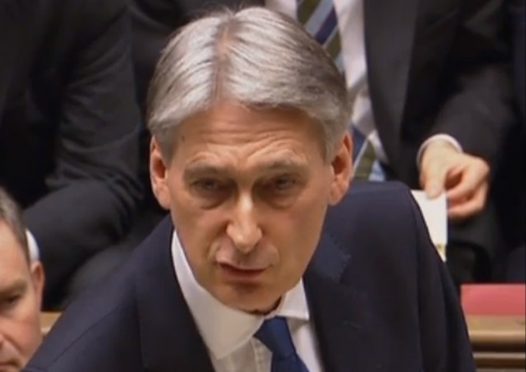The crisis in social care in England has forced Chancellor Philip Hammond to pledge an extra £2 billion over three years to help ease the pressure.
The money, with £1 billion promised in 2017/18, follows intense pressure from MPs and councils, but falls short of the levels of funding demanded by some campaigners.
Mr Hammond acknowledged the system was “clearly under pressure”, with the NHS suffering as a consequence.
In his first Budget, he said that, alongside the additional funding, Health Secretary Jeremy Hunt and Communities Secretary Sajid Javid will announce measures to identify and support councils which are “struggling” and to ensure more “joined-up working” with the NHS.
The Chancellor also announced a £100 million plan to ease the pressure in A&E units.
Referring to the Tory victory in the Copeland by-election, he said: “We are the Government of the NHS.”
Mr Hammond had come under pressure before his Budget to provide extra money for social care and measures to ease the pressure on businesses facing rate rises.
He provided extra money for both – but hit higher-earning self-employed workers with a tax rise as he tried to ensure that he kept the public finances under control.
Labour leader Jeremy Corbyn accused him of “utter complacency” about the state of the economy, public services and the lives of millions of Britons.
In response to the campaign for measures to ease the impact of the business rates revaluation, Mr Hammond set out a £435 million package – including a £1,000 cut for most pubs.
Committing to longer term changes to the system, including better ways to tax online firms, the Chancellor acknowledged that the business rates revaluation had created some “hard cases”.
Under his package of reforms, he said firms set to lose small business relief would benefit from an additional cap on bill rises, limiting hikes in monthly bills to £50 for a year.
Pubs with a rateable value of less than £100,000 – some 90% – will be given a £1,000 discount on their rates in 2017.
Councils will also be given a £300 million fund to deliver “discretionary relief” to hard-pressed firms in their areas.
Under his reforms to National Insurance contributions, Mr Hammond said higher-paid self-employed workers will face rises of around 60p a week, raising an extra £145 million a year for the Exchequer by 2021-22.
Mr Hammond said the Budget sets out a plan for a “brighter future” as the UK leaves the European Union.
With Prime Minister Theresa May expected to start the formal Brexit process within days, the Chancellor told the Commons: “As we start our negotiations to exit the European Union, this Budget takes forward our plan to prepare Britain for a brighter future; it provides a strong and stable platform for those negotiations.”
He added: “We are building the foundations of a stronger, fairer, more global Britain.”
In a speech littered with jokes – despite being nicknamed “Spreadsheet Phil“ because of his usual dry style – Mr Hammond announced:
- Transport spending of £90 million for the north and £23 million for the Midlands to address pinch points on roads, and a new £690 million competition for English councils to tackle urban congestion.
- The NHS will get £325 million to implement controversial sustainability and transformation plans and another £100 million will be put into triage projects to ease the burden on A&E departments.
- There was no change to previously planned upratings of duties on alcohol and tobacco, but a new minimum excise duty is introduced on cigarettes based on a packet price of £7.35.
The Budget will also mean £350 million for the Scottish Government, £200 million for the Welsh Government and almost £120 million for an incoming Northern Ireland Executive.
With Mrs May attempting to see off the potential for a second Scottish independence referendum, Mr Hammond said his package was “demonstrating once again that we are stronger together in this great United Kingdom”.
